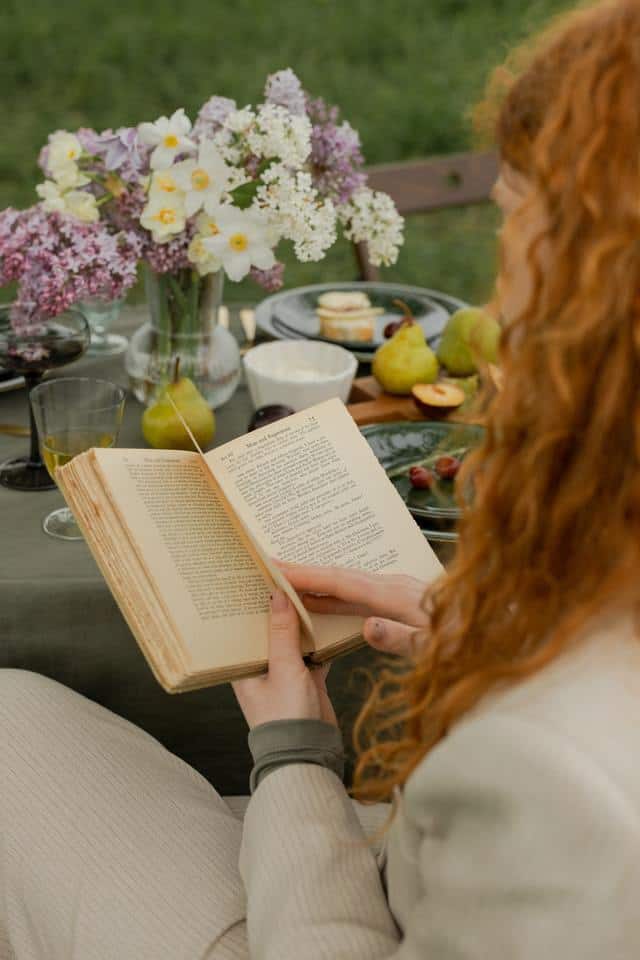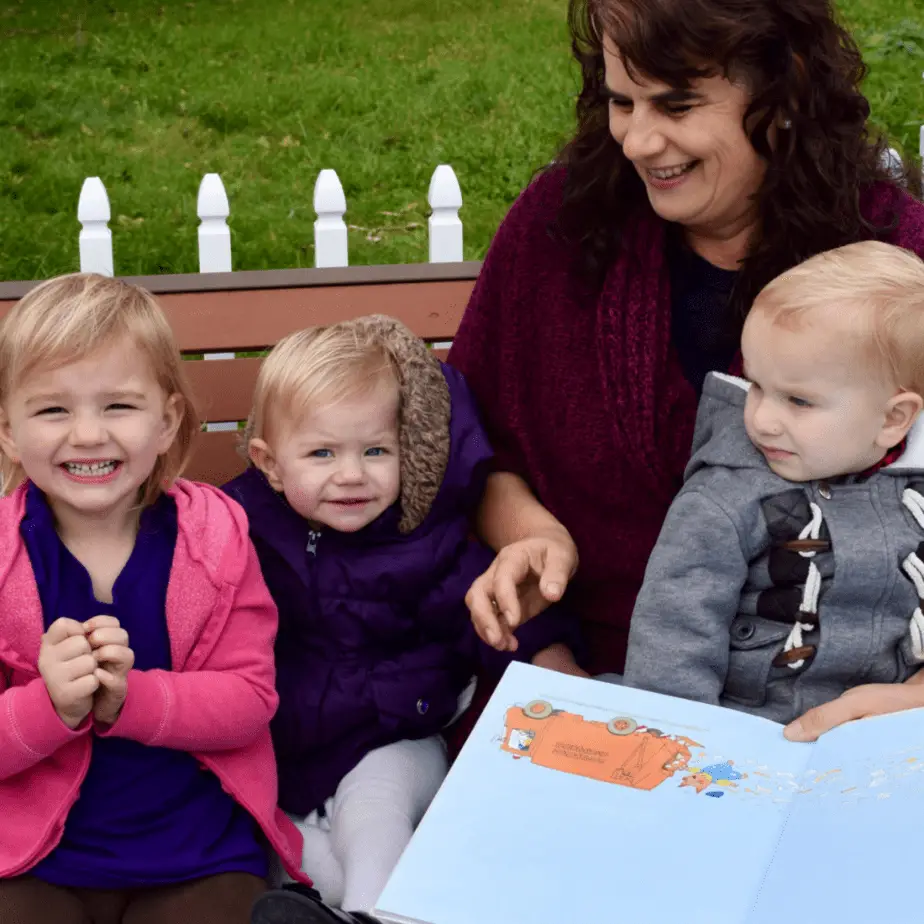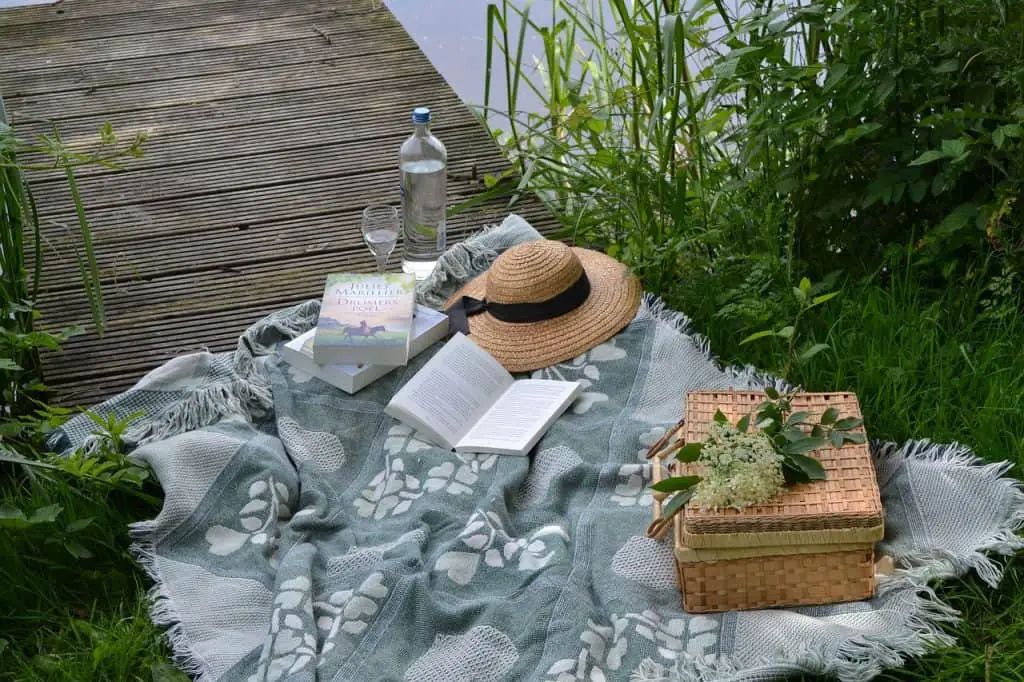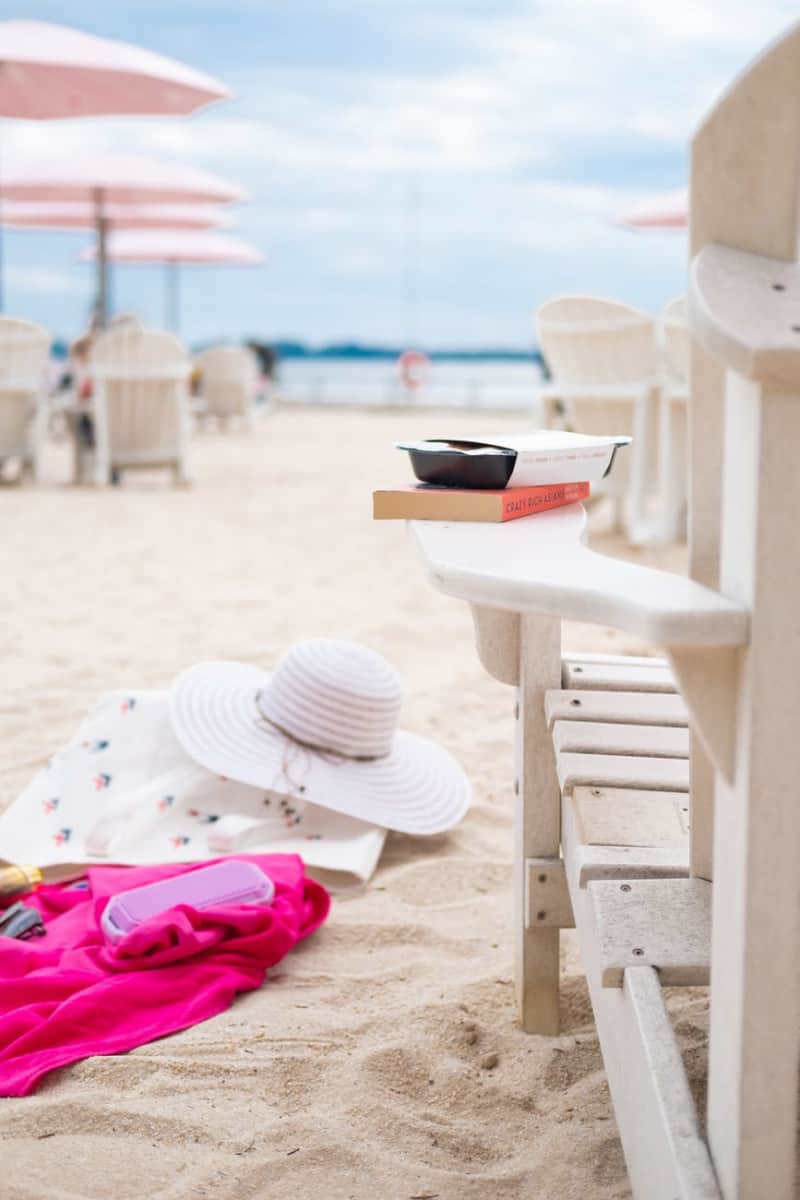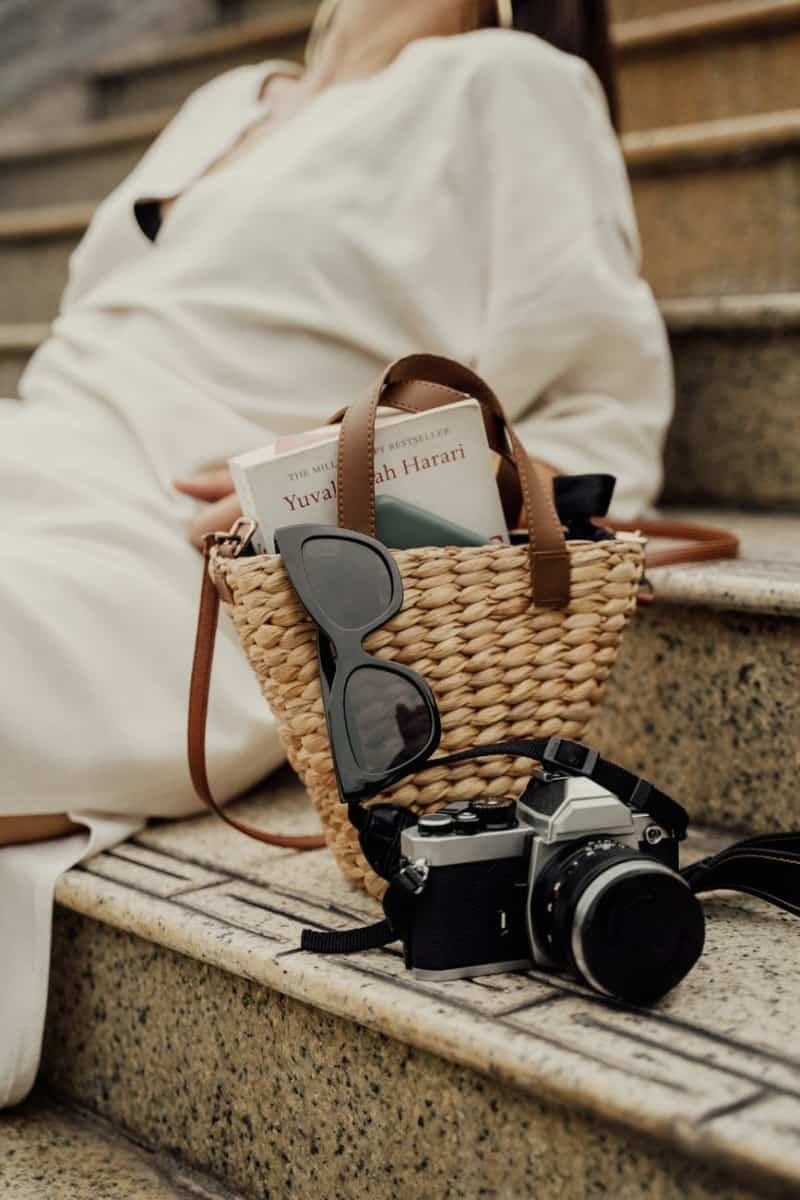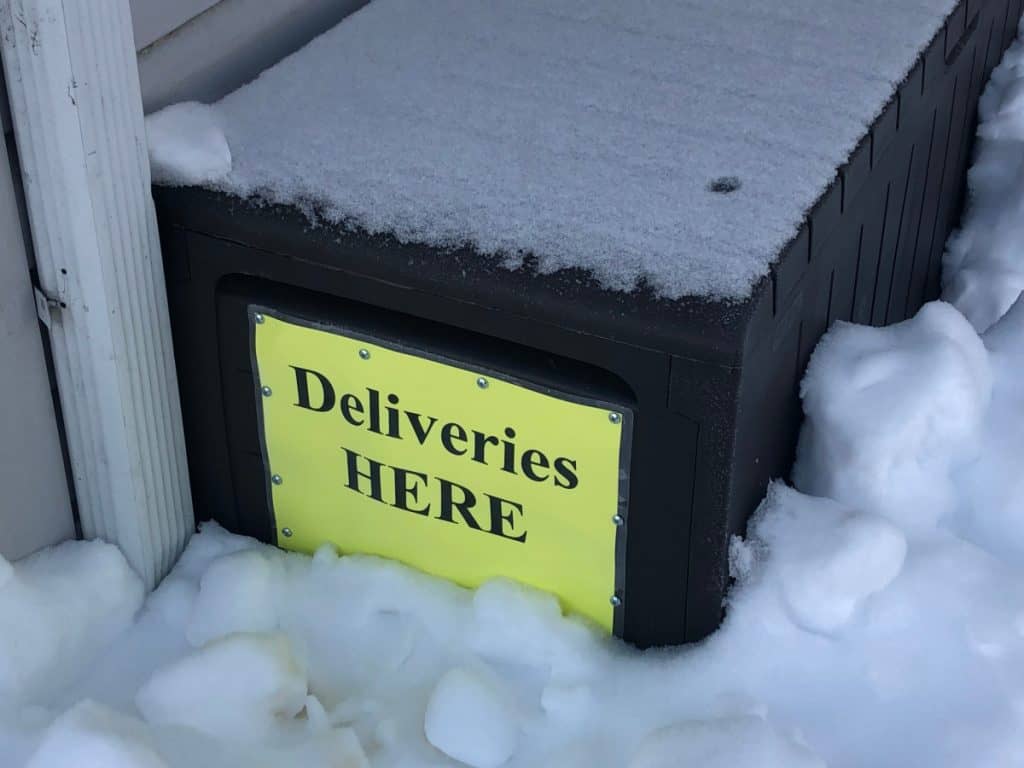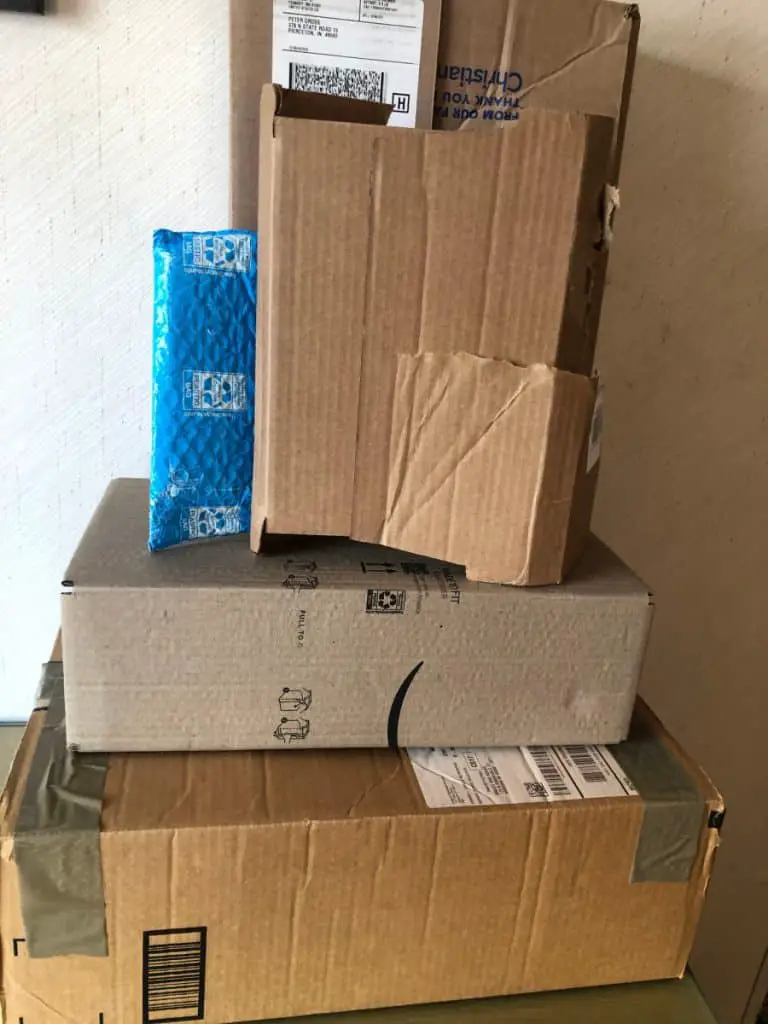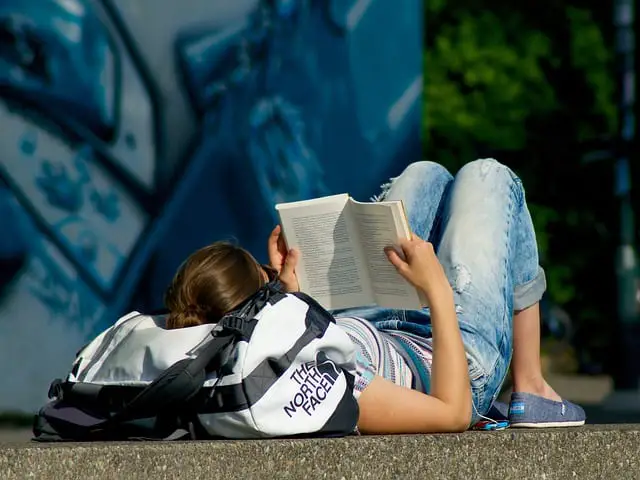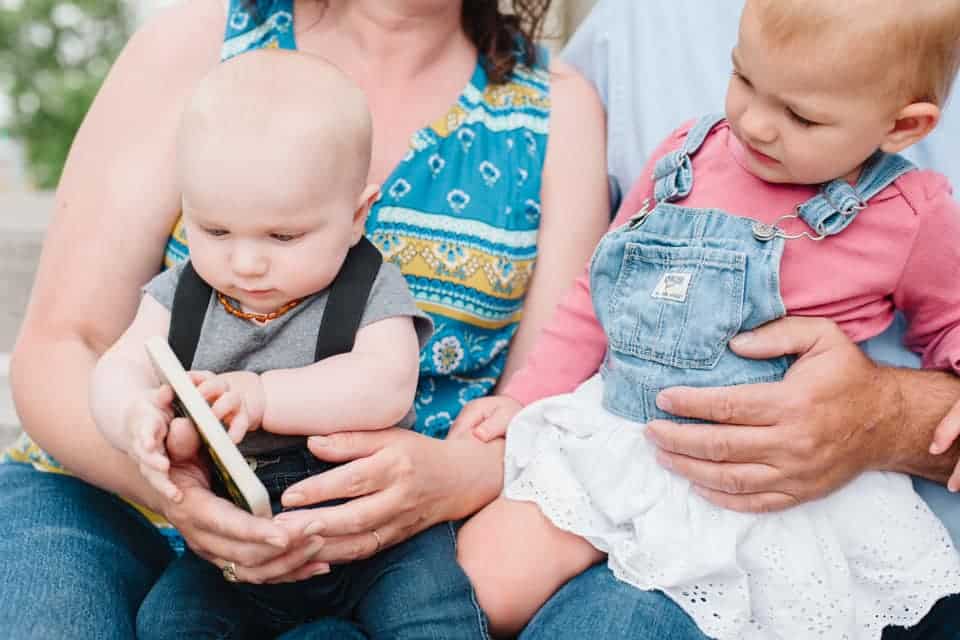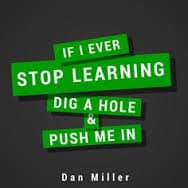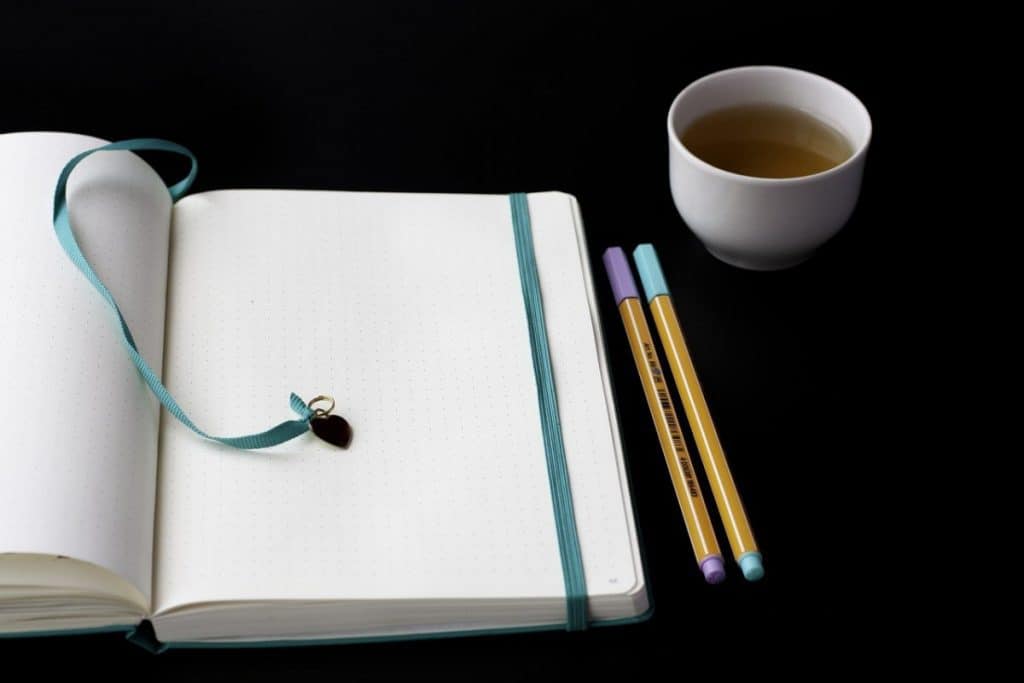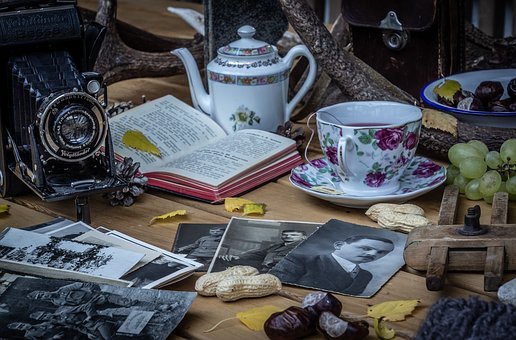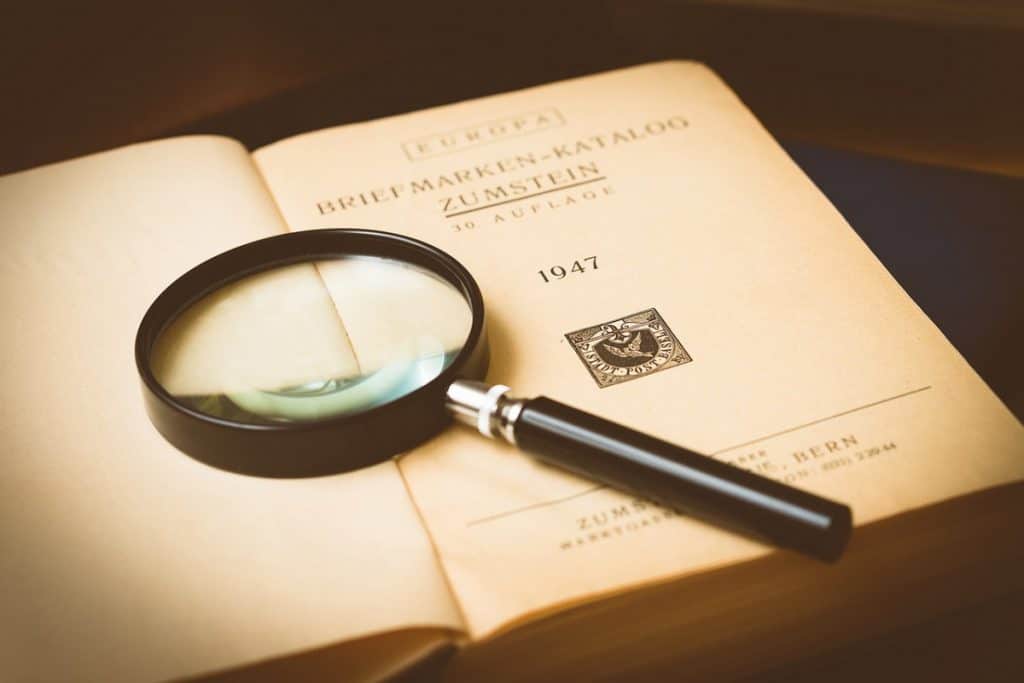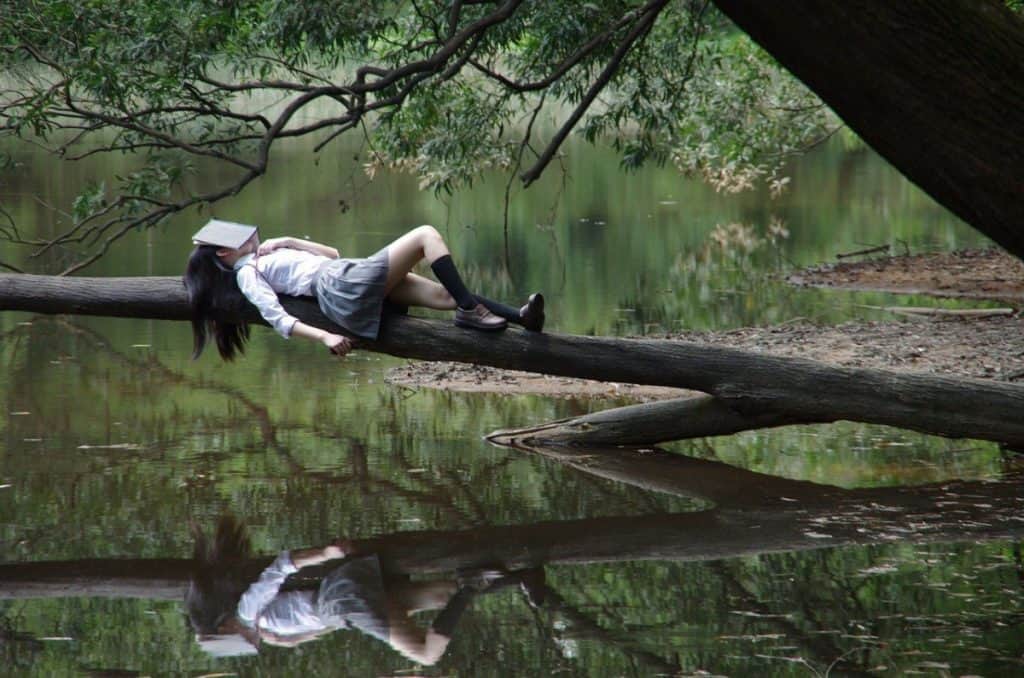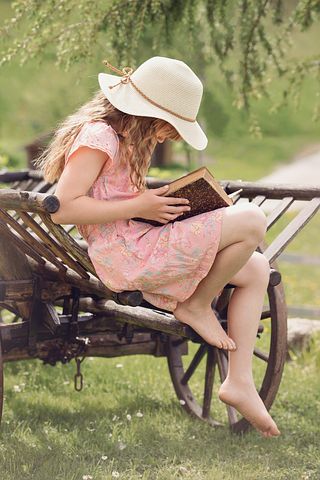Do you remember as a kid how days of summer stretched out endlessly with the illusion they would never end? There was no pressure, no hurry and no reason to go to bed early if you were in the middle of a good book.
Is there any way to recapture that care free feeling of being swept away by a great story during the lazy days of summer?
Yes! I believe it.
But maybe it won’t be as effortless now as it was then.
The way to make your summer reading better as an adult is to know yourself, name what matters, find your book people, build your book stack, organize your reading list and apply the Venn Diagram principle to reading with others.
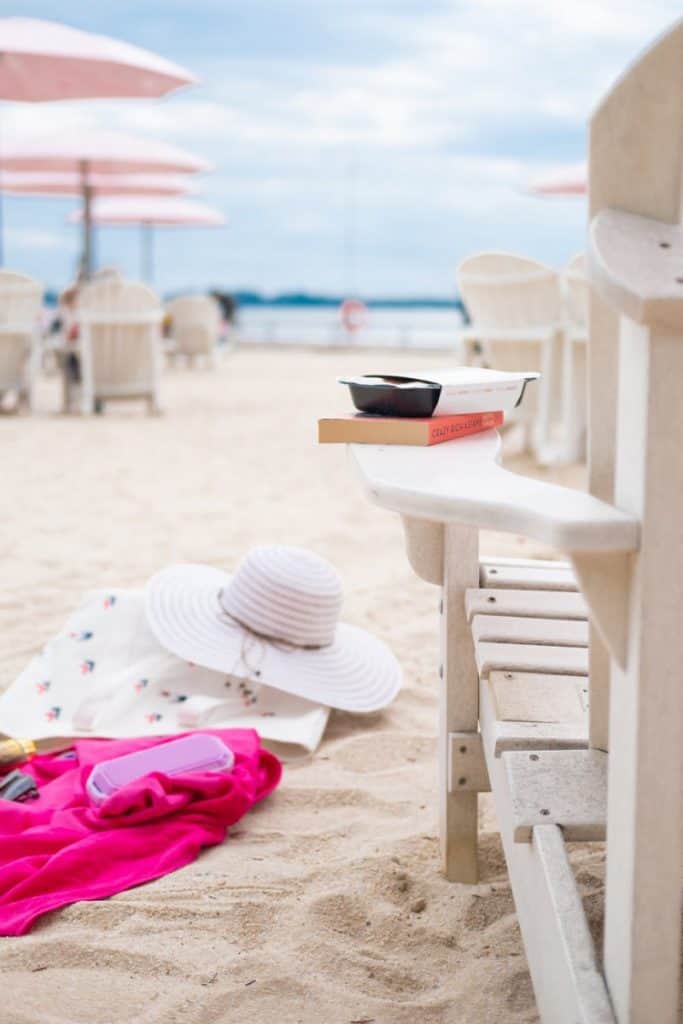
Know yourself
Chase the fun
You know yourself better than anyone. What motivates you? What is relaxing and rejuvenating for you? Crossing off books on a list might give you a great sense of accomplishment. Or, having a list might feel restrictive. Only you know.
You know if you need no structure and no pressure. Do what’s fun.
Follow the curiosity
Follow the curiosity means avoiding the shoulds.
Pick up the books that look intriguing. Go down rabbit holes. Get those dopamine hits from learning new things. If escape reading is what you need most, find the authors, genres, series that draw you in.
Release the guilt that says your reading life has to look like someone else’s.
Name what matters
I’m indebted to Kendra Adachi for the Lazy Genius principle of Name What Matters. Taking some time to think through what is most important to you this summer will pay off. What could matter? What does matter? And what matters most?
Why do you want your summer reading to be better? Because this season has less pressure and fewer activities so offers the best chance to read for fun? Because you miss the time you used to spend swept away by a compelling story? Because you can’t figure out how to make it work in your life right now? What matters?
Decide why you’re reading
Do you want to learn from the experts? Is that why you’re picking up a book? Or do you need to step into another world temporarily and leave the one you have behind for a while. Or a combination of both? Knowing what you want to gain helps you create your best reading life.
Manage your time better
Clear boundaries between work and rest are not easy to draw. Use the clock or a timer to determine when work is done and fun begins.
Replace binge watching or mindless scrolling with purposeful reading
Do what you want to do most and eliminate what you want to do least. Determine your priorities and then schedule your priorities.
Create a book nook
Having an environment that supports your goals is important for success. A comfortable, well-lighted place to read is important. So is the noise level. So is the accessibility factor. If aesthetics matters to you make it beautiful.
Live in the season
Break down your summer into sections. Identify goals or strategies for each section of the summer.
This is good advice from Kendra Adachi on how to have a successful summer.
A key concept here is not to think about the summer as a whole, but to divide it into sections. Natural breaks would be vacation, special events planned or visitors coming.
Each one to five week stretch might look different depending on what’s happening. Determine what the priorities are for each section. Name what matters. Your reading life will look different in each section. Match expectations to the reality of that season.

Find your people
Find some book whisperers
Find bloggers who do book reviews. If the books they review line up with some of your favorites, stick around. If not, move on.
Check out the comments sections of book bloggers to connect with bookish kindred spirits online.
Do some internet searches of books like ______ (your favorite book).
Start a group on Goodreads
Read my post on how to find your favorite book genre. Go through the steps to identify your favorite subgenre of books. Then start a Goodreads group with that subgenre as the name of the group. You will attract other readers to your group who have similar tastes in books.
Join a book club
This could be an in real life club or an online book club. Either way, it will give you a chance to interact with bookish kindred spirits.
Sign up for a summer reading program
This could be at your local library or online. Joining a summer reading program will give you some accountability and some structure and goals for your summer reading. You’ll have to take it a step further if you’re looking for connection. Strike up a conversation with a librarian. Look around for people you know who have also signed up. Or bring along a friend to sign up with you.
Build your book stack
The meme that says “Buying craft supplies is a different hobby than crafting” makes me laugh. But I think finding your next great read can be as much fun as reading. Have fun building your book stack.
Find your favorite book genre
I wrote a whole post on how to find or create your favorite book genre. If you go through the steps and identify what your favorite genre is then you know which books you’re looking for and where to look. Building your book stack will be easier if you know which section of the bookstore and which corner of the internet to head for.
Create a TBR list that works for you
Critical to having a great reading summer is having a great To Be Read list. If you have a long list of books that you’re dying to read, your reading life will be better. If you are surrounded by 3 or 4 options on hand that you’re excited about, finding the time will become a non-issue. Follow Tea and Ink’s tip for discovering trigger warnings in books.
Eliminating books that will cause a bad reading experience is important, too. Stop reading books you don’t love. Modern Mrs. Darcy’s Anne Bogel says, “Life’s too short for bad books”. Abandoning books that aren’t right for you or you’re not ready for will leave more time for the right books.
Build your vacation book stack
As a subset of your TBR list, your vacation book stack meets the need for one small sliver of your life. With a little bit of effort (and some practice) you can load up your Ereader, your phone or your suitcase with a vacation book stack that is full of winners. Read more tips about building your vacation book stack here.
Follow your favorite living authors on social media
Following your favorite authors on social media has multiple advantages. First, you get up to date news about new releases and any sales related to their books. You also get behind the scenes scoops and often a peek into their personal life as well. Finally, if you’re lucky, they will share with you what they’re reading. Good chance what they love you will love.
Reread childhood favorites
If you’re having trouble connecting with new books that you love as adult, consider going back to books you loved growing up. Often you’ll come to appreciate them at a different level, seeing them from the perspective of age, wisdom and experience.
Read Middle Grade and Young Adult books
Don’t limit your search to adult books only. Many middle grade and YA books are brilliantly written. I find them the perfect option during stressful seasons of life when I’m not able to concentrate on complex books.
Organize your reading list
If you want to know the many analog and digital options for organizing your reading list read this post.
Are you keeping a list about books that you heard about and want to read? Or books you’ve read and loved?
Either way, a book journal might be just the ticket. Anne Bogel of Modern Mrs Darcy has a great one. Or maybe an app on your phone or a spread sheet on the computer would work better for you.
Consider expanding your methods for reading
If ebooks or audiobooks aren’t not a part of your life now, dip your toes in the pool and see if you like them. Explore new options. Maybe audiobooks are a good fit for engrossing fiction during your commute, but non-fiction needs to be hard copy so you can tab and highlight your favorite quotes. Maybe ebooks are better for trips when you’re flying but print books are preferred for road trips. Try something new. You might love it.
Living with your people
Communicate to the people in your life when interruptions are okay and when they’re not so welcome.
This is a difficult concept to communicate. When you’re relaxing on the couch with a book, people think that you aren’t doing anything important and it’s not a problem to interrupt you. So many reader memes have to do with this frustration of being interrupted when reading. It’s a real problem.
You can address it head on or you can work to create an environment where you’ll be least likely to be interrupted.
One option is to make a date at the coffee shop for you and your book.
Another idea is to get up early or stay up late so you can read while everyone is asleep.
Apply the Venn Diagram principle to reading with others
Summer is a great time to read aloud to the kids in your life, your spouse or anyone take on vacation. Road trips are perfect for reading aloud or listening to audio books together.
The critical factor for successful read alouds (or audio books) is to religiously apply the principle of the Venn diagram to choosing books. That means everyone needs to be happy with the selection. Even if there’s only a small sliver of overlap where everyone’s happy, you focus on that sliver. Put a little (or a lot) of work into finding the books that everyone likes.
To increase your chances, start with good book lists. I’ve created one for reading aloud with kids. Read Aloud Revival also has great lists with a lot of crowd pleasers.
As Sarah Mackenzie from Read Aloud Revival says, the goal here is to “create lasting and meaningful connections with your kids through books”.
